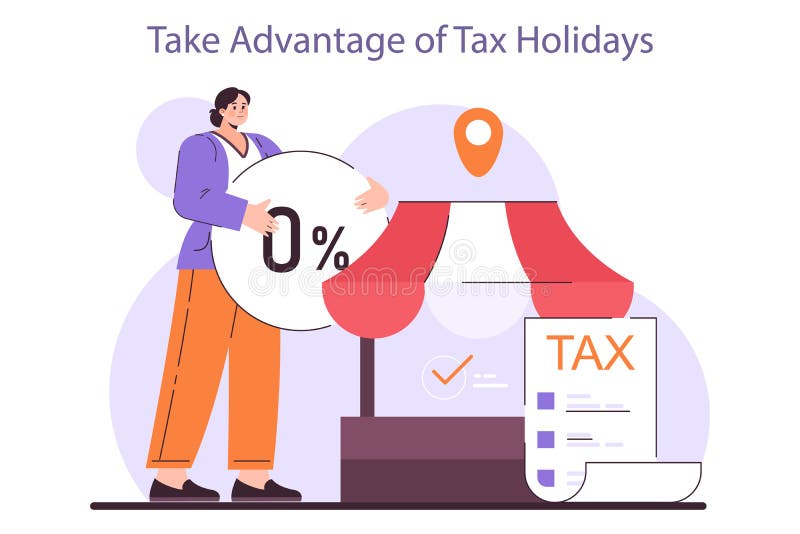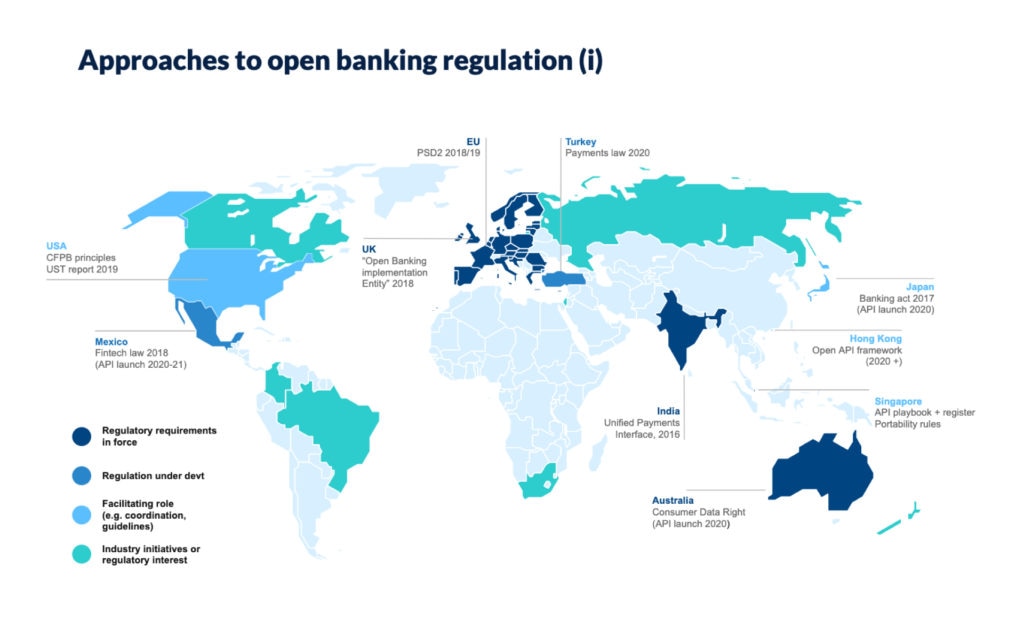
Tax Holidays and Economic Growth: A Critical Analysis – Unpacking the Real Impact of Tax Incentives
In the complex world of economics and government policy, few topics spark as much debate as "tax holidays." Governments worldwide, from emerging economies to developed nations, frequently offer these special deals to businesses, hoping to ignite economic growth, attract investment, and create jobs. But do these short-term tax breaks truly deliver long-term economic benefits, or do they merely create loopholes and drain vital public resources?
This article will embark on a critical analysis of tax holidays, exploring their theoretical benefits, uncovering their often-overlooked downsides, and examining whether they are truly effective tools for sustainable economic development. We’ll break down the jargon and present a clear, balanced view for anyone looking to understand this fascinating aspect of fiscal policy.
What Exactly Are Tax Holidays? A Beginner’s Guide
Imagine a "limited-time offer" for businesses. That’s essentially what a tax holiday is.
A tax holiday is a temporary reduction or complete exemption from certain taxes, typically corporate income tax, offered by a government to specific businesses or industries. The idea is to make a region or country more attractive for investment compared to other locations.
Think of it like this: If Company A is thinking about setting up a factory in Country X or Country Y, and Country X offers them a five-year period where they don’t have to pay corporate income tax, while Country Y doesn’t, Country X suddenly looks much more appealing on paper.
Key Characteristics of Tax Holidays:
- Temporary: They are not permanent tax breaks. They usually last for a defined period (e.g., 5, 10, or 15 years).
- Targeted: They are often granted to specific types of businesses (e.g., those in manufacturing, technology, or renewable energy) or to companies investing in particular geographic regions (e.g., an underdeveloped area).
- Conditional: Companies usually have to meet certain criteria to qualify, such as creating a minimum number of jobs, making a specific amount of investment, or exporting a certain percentage of their products.
Common Types of Tax Holidays:
- Corporate Income Tax Holidays: The most common type, where companies pay little to no tax on their profits for a set period.
- Import Duty Exemptions: Waiving taxes on imported machinery or raw materials needed for production.
- Sales/VAT Tax Exemptions: Exempting certain goods or services from sales tax or Value Added Tax.
- Property Tax Holidays: Reducing or eliminating taxes on land and buildings.
The Optimistic View: Why Governments Offer Tax Holidays
Governments don’t offer tax holidays just for fun. There’s a strong theoretical argument that these incentives can kickstart economic activity. The main hopes and objectives behind offering tax holidays include:
-
1. Attracting Foreign Direct Investment (FDI):
- Concept: Multinational corporations (MNCs) are always looking for the most profitable places to invest. Lower taxes can make a country stand out from the competition.
- Benefit: FDI brings in capital, technology, and management expertise that might not be available domestically. It can also help integrate a country into global supply chains.
-
2. Job Creation:
- Concept: New businesses, especially large foreign investors, require workers.
- Benefit: This can significantly reduce unemployment rates, provide stable incomes, and improve the living standards of citizens.
-
3. Stimulating Specific Sectors or Industries:
- Concept: Governments might want to develop a particular industry (e.g., high-tech, green energy, tourism) to diversify their economy or boost exports.
- Benefit: Tax holidays can accelerate growth in these targeted sectors, fostering innovation and making the country a leader in that field.
-
4. Boosting Exports and Foreign Exchange Earnings:
- Concept: Companies benefiting from tax holidays might be encouraged to produce goods for export, earning valuable foreign currency for the nation.
- Benefit: This strengthens the national currency, helps pay for imports, and can improve a country’s balance of trade.
-
5. Regional Development:
- Concept: To address economic disparities, governments might offer tax holidays to companies willing to invest in less developed or rural areas.
- Benefit: This can bring much-needed infrastructure, services, and opportunities to underserved regions, reducing internal migration to overcrowded cities.
-
6. Technology Transfer and Skill Development:
- Concept: Foreign companies often bring advanced technologies and modern management practices.
- Benefit: Local employees can learn new skills, and over time, this knowledge can spread throughout the domestic economy, improving overall productivity and competitiveness.
In essence, the optimistic view sees tax holidays as a powerful "bait" to lure in investment that would otherwise go elsewhere, leading to a ripple effect of economic prosperity.
The Reality Check: A Critical Look at Tax Holidays
While the intentions behind tax holidays are often noble, their real-world impact is frequently far more complex and often less beneficial than advertised. A critical analysis reveals several significant drawbacks and unintended consequences:
-
1. Revenue Loss for the Government:
- The Problem: The most immediate and obvious cost of a tax holiday is the lost tax revenue. This money could have been used to fund essential public services like education, healthcare, infrastructure (roads, bridges, internet), or social welfare programs.
- Long-Term Impact: If the promised economic growth doesn’t materialize or is insufficient, the lost revenue becomes a significant burden, potentially leading to budget deficits or reduced public services.
-
2. Distortion of Competition and Unfairness:
- The Problem: Tax holidays create an uneven playing field. A new foreign company might pay no taxes for years, while existing domestic businesses (which might have been there for decades, creating jobs and paying taxes) continue to bear the full tax burden.
- Impact: This can disadvantage local firms, making it harder for them to compete, innovate, or expand, potentially leading to job losses in established companies. It can also foster resentment.
-
3. The "Race to the Bottom":
- The Problem: When one country offers a tax holiday, neighboring countries or competitors might feel pressured to offer even more generous incentives to avoid losing investment. This creates a "race to the bottom" where countries continuously lower their tax rates, ultimately eroding the global tax base.
- Impact: This reduces the overall amount of tax revenue available to governments worldwide, potentially leading to underfunded public services globally.
-
4. Deadweight Loss (or "Giving Money Away Unnecessarily"):
- The Problem: Sometimes, companies would have invested in a country even without the tax holiday because the underlying economic conditions (e.g., market size, skilled labor, raw materials, political stability) were already attractive.
- Impact: In such cases, the tax holiday is a "deadweight loss" – the government gives away tax revenue for an investment it would have received anyway. It’s like paying someone to do something they were already going to do.
-
5. Short-Term Focus vs. Long-Term Sustainability:
- The Problem: Tax holidays are temporary. Once they expire, companies might pack up and move to another country offering a new tax holiday (known as "footloose capital").
- Impact: This creates a cycle of short-term investment without fostering deep, sustainable economic linkages. It doesn’t encourage companies to invest in long-term infrastructure, research, or local supply chains.
-
6. Limited Linkages to the Local Economy:
- The Problem: Some foreign companies operating under tax holidays might import most of their materials and machinery, employ primarily expatriate managers, and repatriate (send back) most of their profits to their home country.
- Impact: This limits the "spillover" benefits to the local economy, meaning less local purchasing, fewer local supplier relationships, and less knowledge transfer than hoped for.
-
7. Potential for Abuse and Tax Evasion:
- The Problem: The complexity of tax holiday schemes can sometimes be exploited for tax avoidance or evasion. Companies might manipulate transfer pricing or shift profits to take maximum advantage of the zero-tax period.
- Impact: This further exacerbates revenue loss and undermines the integrity of the tax system.
-
8. Neglect of Fundamental Economic Drivers:
- The Problem: Governments might become overly reliant on tax holidays, neglecting more fundamental and sustainable drivers of economic growth.
- Impact: Instead of improving the overall business environment (e.g., strengthening the rule of law, reducing corruption, investing in education and infrastructure), they focus on a single, often superficial, incentive.
Measuring Success: How Do We Know if They Work?
Determining whether a tax holiday has been truly successful is incredibly challenging. It’s not enough to just count new factories or jobs. A real evaluation needs to consider:
- Net Impact: Did the tax holiday genuinely attract new investment that wouldn’t have come otherwise, or did it just provide a windfall to companies that were already planning to invest? What was the net gain in jobs after accounting for potential job losses in competing domestic industries?
- Cost-Benefit Analysis: Did the economic benefits (new jobs, technology transfer, increased exports) outweigh the direct cost of lost tax revenue and the indirect costs (like distortions to the market or reduced public services)?
- Long-Term Sustainability: Did the investment lead to lasting economic benefits, or did it disappear once the tax holiday ended? Did it foster local industry growth and skill development?
- Opportunity Cost: What else could the government have done with the lost tax revenue? Could that money have been better spent on education, infrastructure, or healthcare, leading to more sustainable and equitable growth?
Often, the data needed for a comprehensive evaluation is difficult to obtain, and the counterfactual (what would have happened without the tax holiday) is impossible to observe directly.
Alternatives to Tax Holidays: More Sustainable Approaches
Instead of relying on temporary tax breaks, many economists argue that governments should focus on creating a fundamentally strong and attractive business environment. These more sustainable approaches include:
-
1. Stable and Predictable Regulatory Environment:
- Focus: Clear, consistent, and fair laws and regulations that don’t change arbitrarily.
- Benefit: Businesses thrive on certainty. They need to know the rules of the game won’t suddenly change, protecting their investments.
-
2. Strong Rule of Law and Anti-Corruption Measures:
- Focus: An independent judiciary, effective enforcement of contracts, and minimal corruption.
- Benefit: This builds trust, reduces business risks, and ensures a level playing field for all.
-
3. Investment in Quality Infrastructure:
- Focus: Reliable electricity, efficient transportation networks (roads, ports, airports), accessible internet, and clean water.
- Benefit: These are fundamental for any business to operate efficiently and reduce costs, making a location attractive regardless of tax rates.
-
4. Developing a Skilled and Educated Workforce:
- Focus: Investing in education, vocational training, and continuous skill development programs.
- Benefit: Companies need qualified employees. A ready supply of skilled labor is a powerful magnet for investment and boosts overall productivity.
-
5. Market Access and Trade Agreements:
- Focus: Negotiating favorable trade agreements and ensuring easy access to large markets.
- Benefit: Businesses want to sell their products. Access to consumers, both domestically and internationally, is a huge draw.
-
6. General Tax Reform:
- Focus: Creating a simpler, broader-based tax system with moderate, competitive rates that apply equally to all businesses.
- Benefit: This reduces administrative burdens, promotes fairness, and provides consistent revenue for public services without creating distortions.
-
7. Targeted Subsidies (with Strict Conditions):
- Focus: Instead of tax holidays, offering direct grants or subsidies for specific, measurable outcomes (e.g., R&D, training local staff, using local suppliers).
- Benefit: These can be more transparent and tied directly to desired behaviors, with clear expiration dates and accountability.
Conclusion: A Balancing Act
Tax holidays are a double-edged sword. While they hold the promise of attracting investment and stimulating economic activity, a critical analysis reveals that their benefits are often overstated, their costs underestimated, and their long-term effectiveness questionable. They can lead to significant revenue loss, distort markets, foster unfair competition, and trigger a counterproductive "race to the bottom" among nations.
For governments aiming for truly sustainable economic growth, relying solely or heavily on tax holidays is a risky gamble. The focus should instead be on building a robust, predictable, and fair business environment characterized by strong institutions, sound infrastructure, a skilled workforce, and a transparent regulatory framework. These fundamental strengths attract and retain high-quality investment not just for a temporary tax break, but for the long haul.
Ultimately, effective economic development is a marathon, not a sprint driven by short-term incentives. It requires careful planning, consistent investment in public goods, and a commitment to policies that foster broad-based, equitable, and sustainable prosperity for all citizens.



Post Comment